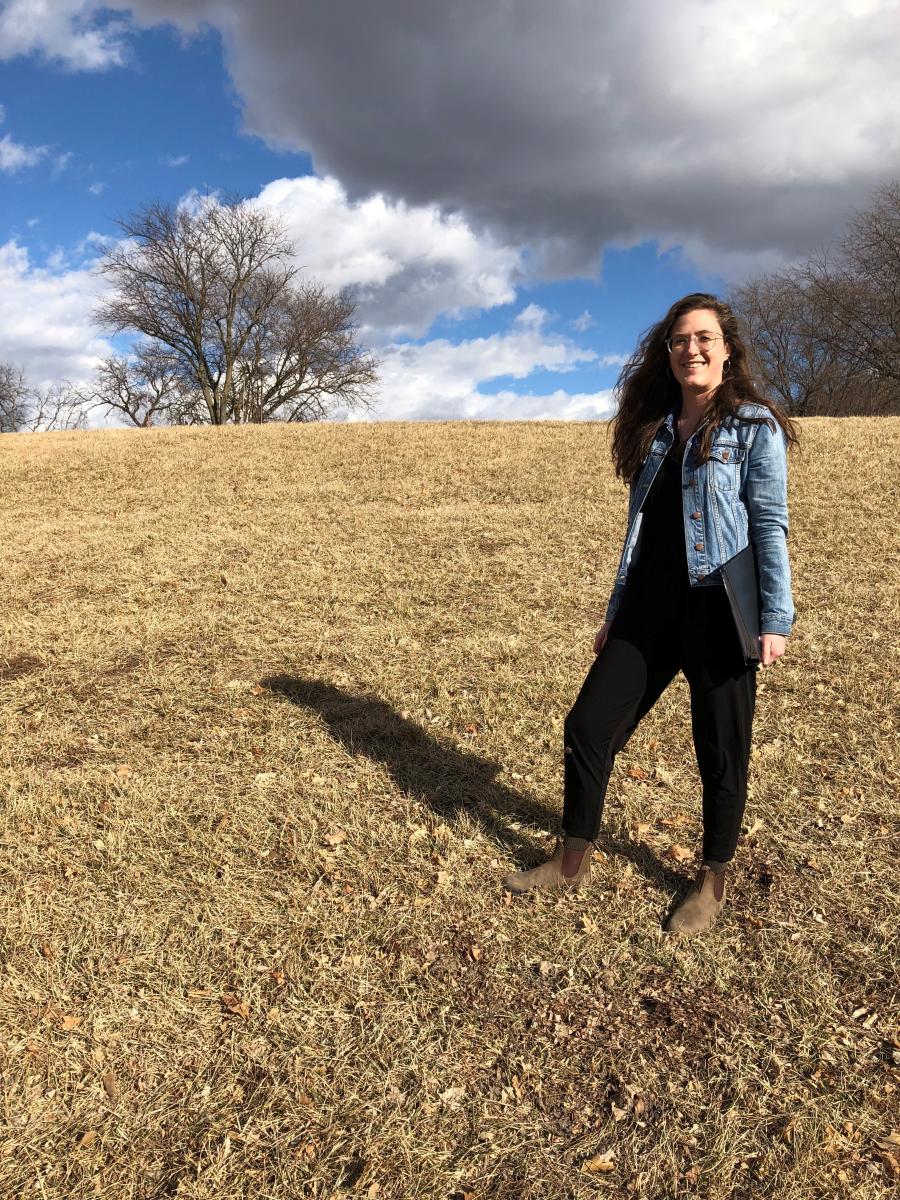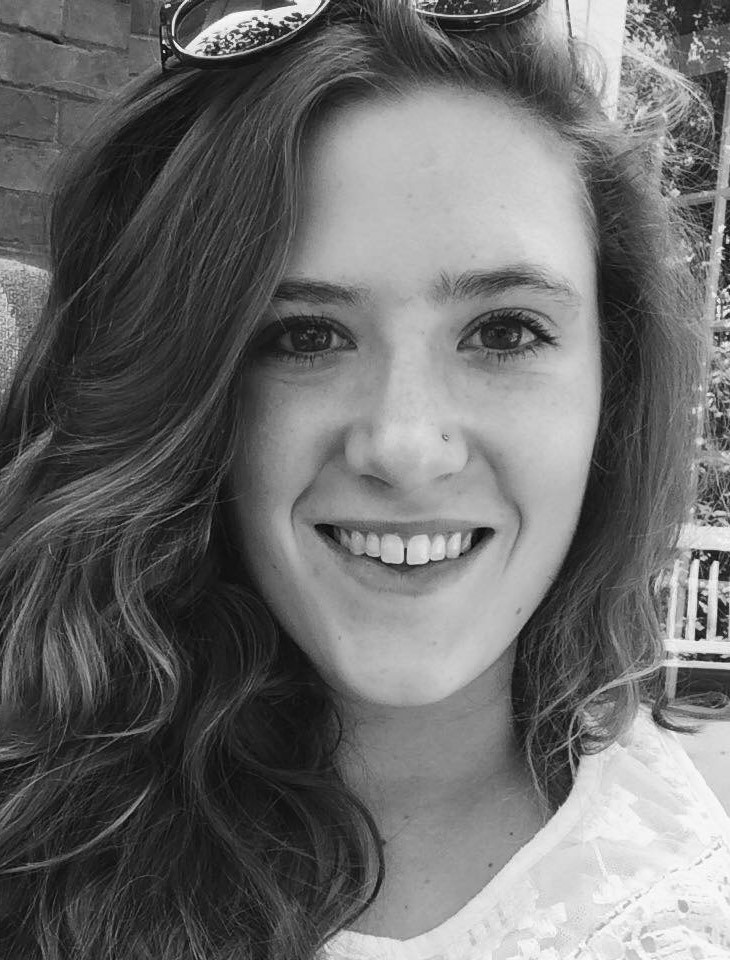Addressing the red cedar invasion with Big Red science
After moving from Georgia to Nebraska to join the NRT, master’s student Julie Fowler quickly discovered that Nebraskans love cheering “Go, Big Red!” but there is one red thing they’re done cheering for and wish would be gone already.
Red cedar trees.
Also called Juniperus virginiana or eastern redcedar, the trees are native to Nebraska but have been invading grasslands and harming the ecosystems. Landowners and managers have been removing the cedars and burning land to free it of them.
Microbes needed for healthy soil functions have changed with the cedar invasion. Fowler is investigating whether these changes in soil microbes and chemistry increase the likelihood the cedars will reinvade grasslands or decrease the likelihood that other plant species will grow.
Right now, she has more questions than answers but said she enjoys working that way, having been drawn to ecology by the unknown.
“I fell in love with the sort of minutiae of what there is to study out there and what we don’t know,” she said. “It’s fun to know that there are unlimited questions at every corner of the environment and that we don’t even know the questions to start asking a lot of the time. I think that’s really exciting.”
She works in the labs of professors Tala Awada in the School of Natural Resources and Rhae Drijber in the Department of Agronomy and Horticulture but has been impressed by how many other university labs are working on the cedar problem.
“I haven’t been in any other part of the country where one invasive species has united people so much,” she said. “Eastern redcedar truly is a problem here in Nebraska, and it’s neat to see how landowners, the university and other partners are collaborating to resolve it. This is exciting to see.”
Fowler is funded by the NRT, which supports graduate students researching the resilience of agricultural ecosystems. Her focus is hysteresis, the idea that once an ecosystem or other complex system has changed state (like a grassland turning into woodlands), it usually takes more effort to restore it than what it did to first change it.
She will continue examining soils in the Loess Hills over the next year to try to determine whether burning the cedars is enough to restore grasslands or whether a soil remediation or something else is needed.
So far, she said the greatest lesson she has learned through this master’s work at Nebraska is not about soil or trees but about the process of “doing science.”

“What has really been nice about this master’s is just learning what the process of doing science is,” she said. “The thesis you write as a master’s is, hopefully, really high quality and is a great experience, but it’s not necessarily the end product that’s important. It’s learning how to do that.”
Working in Awada and Drijber’s labs, she said she has gained an understanding of how to write grant proposals, make good hypotheses, use statistics in designing ecological experiments and communicate science more clearly. This has prepared her far better for doctoral work than just a bachelor in science would have, she said.
“I feel like if I had gone straight to a Ph.D., I would have just been woefully underprepared,” she said. “Now I feel like, if I had a topic I wanted to study at a good institution, I could walk in and be like, ‘OK. I have a plan. I should read this first. Maybe meet with some statisticians and come up with a good study design.’ I could hit the ground running. I definitely could not have done that without this sort of program.”
Fowler came to the NRT after studying bees and other pollinators as an ecology undergraduate elsewhere. She had wanted to continue in ecology, she said, but was ready to study something different.
“This particular project has been exciting because I knew so little about grasslands when I moved here,” she said. “It was a completely new field to me. Soil science was new to me. I had used a few of the techniques, but not many. Most of it was from-the-ground-up learning, which I really enjoyed.”
Fowler said she also enjoyed venturing out into the unknown in Nebraska, experiencing snow more than a centimeter deep and driving in it.
“I really like living in places that I have never lived before and know nothing about,” she said. “Nebraska fit that bill.”
She said she is considering a career “connecting people to science and through science” similar to her work with the Council for Resilience Education, a student organization she cofounded and leads in publishing open-access educational materials on ecological resilience. She plans to start a related doctorate in a new place, hoping to enjoy another fresh experience like what she had at Nebraska.
“Everything was completely new to me, and I think that experience is so fun,” she said. “I really love it and intend to do it again.”



